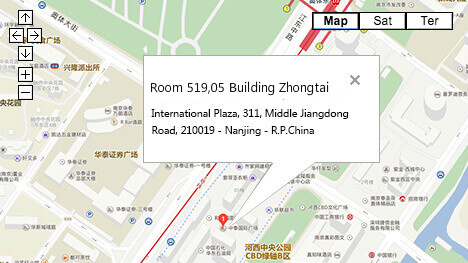Some clients have asked us “what is a certificate of conformity” over the years, and…

Chinese Suppliers Are Getting Less Flexible. Now What?
BY RENAUD ANJORAN
About 6 months ago, I wrote how Chinese fabric suppliers and dyeing houses were giving headaches to the whole supply chain.
It had a serious impact on Chinese apparel suppliers (many delays, higher costs, higher MOQs for fabric…).
And, in turn, those suppliers got more rigid when dealing with their oversea customers. The attitude was “that’s the way it is and we can’t make miracles, so just get in line”.
That’s actually an overall trend, in many industries, from what I have heard. And it is not new — I remember some buyers seriously complaining about this in 2009.
And some consultants are showing Chinese manufacturers how to be stronger in front of foreign buyers.
I ran into an interesting Bloomberg article entitled The Trade War Whisperer Battling Trump – One Factory at a Time. It tells the story of one such consultant:
From a Hong Kong apartment, entrepreneur Ben Chu runs contract negotiation lessons online for Chinese factory owners and businesses to give them a leg up with American buyers. The 40-year-old is emerging as a resistance leader among small local manufacturers grappling with U.S. tariffs — and he’s beaming a clear message to his followers. China has the upper hand so get out there and cut a better deal, he tells his classes.
His advice is to always ask for higher volumes (or some other tangible benefit) before agreeing on any price cut.
More and more companies here are aware of these truths:
China’s domination of exports to the U.S. spans multiple industries, from frozen tilapia fillets and mattresses to travel bags and e-cigarettes, giving America little choice over suppliers.
U.S. companies have been talking about reducing their dependence on China for years, to little effect, according to Chu.
It’s a “seller’s market,” he said. “The reliance on China is still very heavy.”
So, as a foreign buyer, what can you do?
There are basically two approaches, and one of them certainly makes more sense for you:
- Keep sourcing new suppliers, in order to find people willing to give you what you want. That makes sense if you give one-off orders for promo items, across a wide range of product categories.
- Be very close to a few key suppliers for whom you represent 20-40% of annual production, help them where you can, and push them to find ways to cut costs across the supply chain (considering your company, theirs, and the component suppliers). That probably makes sense for your core items, if you keep re-ordering them over time.
The position you don’t want to be in is as follows:
- Buyer is small compared to supplier, and there is little hope of growing much in the next 2-3 years
- Buyer is not seen as a stable, profitable, predictable, long-term customer
- The only face-to-face exchanges are about price, and are held every 12+ months
- From time to time, you have been a bit too direct and insulted key people at the factory (it’s fine to insult the boss, but not the managers, engineers, etc.)
- Moving your production to another factory would take some effort on your part, and the supplier knows it
—
From: qualityinspection



This Post Has 0 Comments